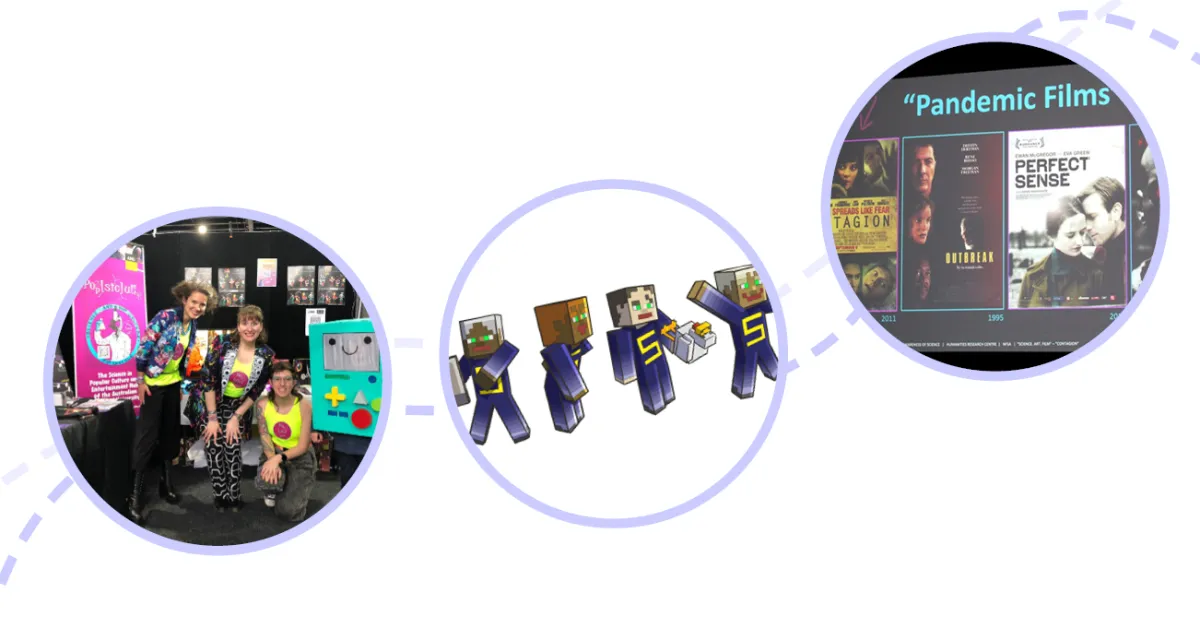
Science, media and culture
About
Science is a critically important way of understanding the world and our place within it. However, scientific knowledge is not detached from society. Instead, it is shaped by public imagination, cultural narratives, social values, and political and philosophical contexts. Cultural representations of science show us not just what we know, but how we came to know it and why that journey continues to influence how science is practiced, envisioned and challenged today. Science in popular culture, for example, shapes public understandings and cultural ideas of science, influences attitudes toward scientific issues, and reveals how society negotiates truth, trust and imagination.
This research theme explores the dynamic intersection and mutual influence of science, traditional media, social media, and (public) art, and the diverse audiences that they engage. It investigates how history, media, popular culture and entertainment shape our understanding of science and influence public discourse. By examining narratives across media forms, this theme clarifies how science operates as a cultural force and how its portrayal in culture, media and art affects and communicates the science-society relationship.

Key areas of inquiry include, but are not limited to:
- How does (social) media about science, scientific research and perceptions of controversial science shape understanding and engagement with topics such as climate change?
- How can artistic expressions from theatre, comics to fictional films communicate scientific ideas, inspire science awareness and innovation and blur the lines between science and art?
- How does pop culture shape the cultural meanings of science?
- What can popular entertainment tell us about science and public perceptions of science?





